Whether you’re a Turbo Tax in February kind of guy (bully for you if you are) or you’re up pulling an all-nighter on April 14 (and if you can pull that off… ok you get your own props. Five Hour Energy drink is nasty), MOST of you will have probably filed your taxes by now. Congrats–another year of box-checking, check-writing drudgery behind you.
But now that you’ve done your taxes, should you just stop thinking about them for the next 11 months? As my rabbi friend Paul likes to say (like, over and over and over)… by no means!
Actually, this is the time of year when you might find it most convenient and fruitful to do a bit of introspection when it comes to your tax life. While we plan for taxes months and sometimes years in advance, until you send off that tax return it’s hard to know exactly where all the numbers are going to shake out. You, with your fresh tax return in hand, have some really helpful information at the ready on any changes you might need to make to improve your situation next year.
So I wanted to provide you with a few tips on what to do AFTER you file your taxes. Will you at least hear me out as I pose 3 measly questions to you? Just… humor me:
- Did you get a refund?
If you did, you might be clicking your heels and already planning your family adventure to sad, masked Disneyland. But really, let’s hold off on the celebration. The truth of the matter is that you gave the government a free loan last year, and they’re just finally returning your money to you. You never owed it to them, but you sent it to them anyways, just to hold onto for months. And while the refund feels kind of exciting and may act as a sort of forced savings for your family… the gub’ment ain’t paying you interest. Sounds a leeeetle bit like burying your money in a field if you ask me.
So don’t do that. Instead, plan for all the income you earn.
Don’t play head games with yourself so that you feel ‘permission’ not to steward some of the resources with which you’ve been entrusted.
“Ok ok, Regis, as usual you’re right about everything”, you say. “I understand my hubris; I shouldn’t overpay my taxes… but I did. And I’m not sure how to fix that”. [You wistfully throw a rock into a pond, wondering what will become of you.]
Hey, chin up, pad’nah! For most folks this is a pretty easy fix!
If you’re self-employed, this is as simple as just lowering the amount of estimated tax payments you’re sending in throughout the year. Easy peasy.
If you’re an employee, adjust your withholdings downward. In order to do this, request a form W-4 from your employer and fill it out with an additional exemption or two added in. This will decrease the taxes that your employer withholds from your paycheck and sends to the IRS on your behalf.
Sometimes people resist doing this because, for whatever reason (often just plain old wishful thinking), they’re expecting to make a whole lot more money next year, and they’re afraid of an underpayment penalty. …well this is where the tax term “Safe Harbor” comes into play:
I want you to think of yourself (and when I say self, I mean your tax situation – which is how I think most of our readers, deep down inside, would characterize their innermost being: “at my core, when I think of my True Self… I know I am a… tax situation”)… anyway, think of yourself as a 17th century clipper ship. Now if there was a big hurricane coming, where would you go? If you said you’d look for a Safe Harbor (wink!), I’d give you a gold star (but just so you know your classmates all rolled their eyes behind your back; I pretty much gave away the answer and you kind of come across as a brown noser when you state the obvious like that. Just saying).
As far as taxes are concerned, the safe harbor provision says:
- If you pay 100% of the tax you owed last year (for married couples who make less than $150k per year), you won’t be assessed any underpayment penalties.
- If you make more than $150k per year and you’re married, you’ll have to pay 110% to be in that safe harbor of no penalties. That means that if you paid $15k in taxes in 2020 and then made a million bucks this year, as long as you pay $16,500 throughout the year you won’t be assessed any underpayment penalties. You will, of course, be assessed a massive tax bill. But that’s what you get for going and making a million bucks, you big fat earner, you.
So quit making excuses for the free loans you’re providing the government. We’re having a party over here in the safe harbor, and we want you involved.
2. Is Bunching Right for You?
Bunching can be a red flag that you’ve waited far too long to replace your boxers. But it can also be a useful tax strategy for folks whose itemized deductions aren’t creating much benefit for them. Let’s talk about it.
First: standard deduction. The standard deduction, which used to be $13,000, was the amount that any family could take out of their tax bill if they didn’t care to itemize. So a married couple filing a joint tax return who did no giving and rented their home could just take a standard deduction of $13k and be happy about it. But eclipsing that number by itemizing all the tax deductions possible (mortgage interest, real estate taxes, charitable giving, etc.) used to be pretty easy if you owned a home or were, like we are around here, a giving machine.
Well the Tax Cuts and Jobs Act (“TCJA”. Zero points for creative titling, guys) made a huge change to the standard deduction for families in 2018, raising that amount from $13,000 way up to $24,000.
After this big change, many families who were previously far beyond the standard deduction now found themselves right below or barely above the new amount.
If that’s you, (again: if you have itemized deductions that are pretty close to $24,000 a year), a ‘bunching’ strategy may be just the ticket. Here’s how ‘bunching’ works:
- Instead of doing all of your normal giving, tax payments and even medical payments every year, you’re going to ‘bunch’ them and pay them every other year.
- You’ll do this by making two years worth of charitable gifts in a single year, as well as by prepaying your real estate taxes in December for the following year (this is for your “itemizing year”). You can even pay big medical expenses in a year that you’re planning to itemize deductions if they exceed 7.5% of your adjusted gross income. Hey now!
- Because you’re bunching every other year, you’ll take the standard deduction in the years when you aren’t itemizing.
To illustrate why this is a good idea for certain families, let’s consider a family that normally has $25,000 worth of tax deductions…
If they file taxes normally, they’ll be able to deduct that $25k a year.
If they use our very fancy and super smart bunching strategy…
Every other year they’ll get a $24k standard deduction (barely less than their itemized deduction) BUT!
In their magical ‘bunching’ years they will deduct a whopping $50k – saving them a bundle in taxes overall!
Sweet, right!?
This strategy does take some planning ahead, particularly for those who like to do their giving as they go, obediently using the first part of their earnings generously! Fist bump.
One tool that can help you time this out is a donor-advised fund (so many new terms! You’re LEARNING right now, is what’s happening! LEARNING!)
Someday we’ll write a whole article about donor-advised funds and you’ll see a link to that article here, but in a nutshell, these are like personal charitable savings and investment accounts that let you donate (and receive the tax deduction for donating) money today and then distribute it to a charity of your choice later on. So you could donate two years’ worth of charitable contributions to a donor-advised fund this year and then tell them to distribute a check for 1/24th of that money each month over a two year period. There are many other ways to use a donor advised fund to save on taxes but we’ll cover those in a future post. Just FYI.
3. Should you hire an Accountant?
Last thing you might be wondering if you were mister stay-up-real-late-one-night-in-April-doing-those-taxes guy is, “Should I reeeeeally be taking a DIY approach to my taxes?”
Speaking as a man who did his own taxes for many years, including in years when I had a very complex situation due to real estate investments and complex stock incentives, I know that it can be easy to be tempted to save the $400 on tax prep and devote a Saturday to TurboTax.
For some people that’s still the right call, but it can also be easy to make the classic “penny wise and pound foolish” mistake here (which means, you’re pinching pennies and end up on the short end of the stick for being cheap)…
A good CPA does a whole lot more than just enter your data into a computer for you and save you a few hours of sorting through all those forms you get every February. They can also do things like:
- Provide proactive estimates of what you’ll owe in future taxes
- Take on liability for the correctness of your tax return so that you’ve got an advocate if the IRS wants to dispute something
- Suggest new strategies to save on taxes in the near or distant future
- Keep track of things like accumulated depreciation that you need to record accurately over time in order to file taxes properly
- And so much more…! Not dull!
Unfortunately, we don’t know all that many good CPAs. In fact, we would love to know more good CPAs, so if that’s you, please drop us a line!
Side note: if you’re a bad CPA, that’s OK. First off, you’re in pretty thick company. Second, I am downright certain that you have other redeeming traits. One of the best grillmasters I’ve ever known was a terrible CPA from Des Moines. He’s in a low security prison now but, holy smokes… that brother could finish a ribeye.
All this to say: you may be ready to consider handing over the tax return to a pro, and you may find that the money you spend comes back to you several times over through wise strategies and careful attention to detail (Tax credits! Lesser-known deductions! Savings galore!) that the average person might miss. A good financial planner can also be a huge help when it comes to tax planning – either in coordination with a CPA or, in some cases, as a second set of eyes to provide long term strategy for the DIY-minded tax preparer.
And that’s it! Three simple questions! Thanks for hanging in there.
Now that you’ve made it across the tax finish line for this year, take our encouragement to keep the momentum going and be proactive about your family’s financial situation next year!
Just as we don’t want you to sit back and let your financial condition to be dictated to you by circumstances, we also think you have a responsibility to steward how you navigate the sometimes-complex world of tax:
- paying what you rightly owe (and not a nickel more)
- but not carelessly overpaying or creating penalties that could otherwise be avoided.
*Mark Parrett is one of the founders of Abraham’s Wallet. When not blogging for you here, he’s raising a family in Salt Lake City, UT and working as a financial planner at Outpost Advisors.






